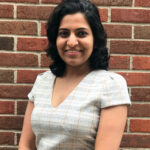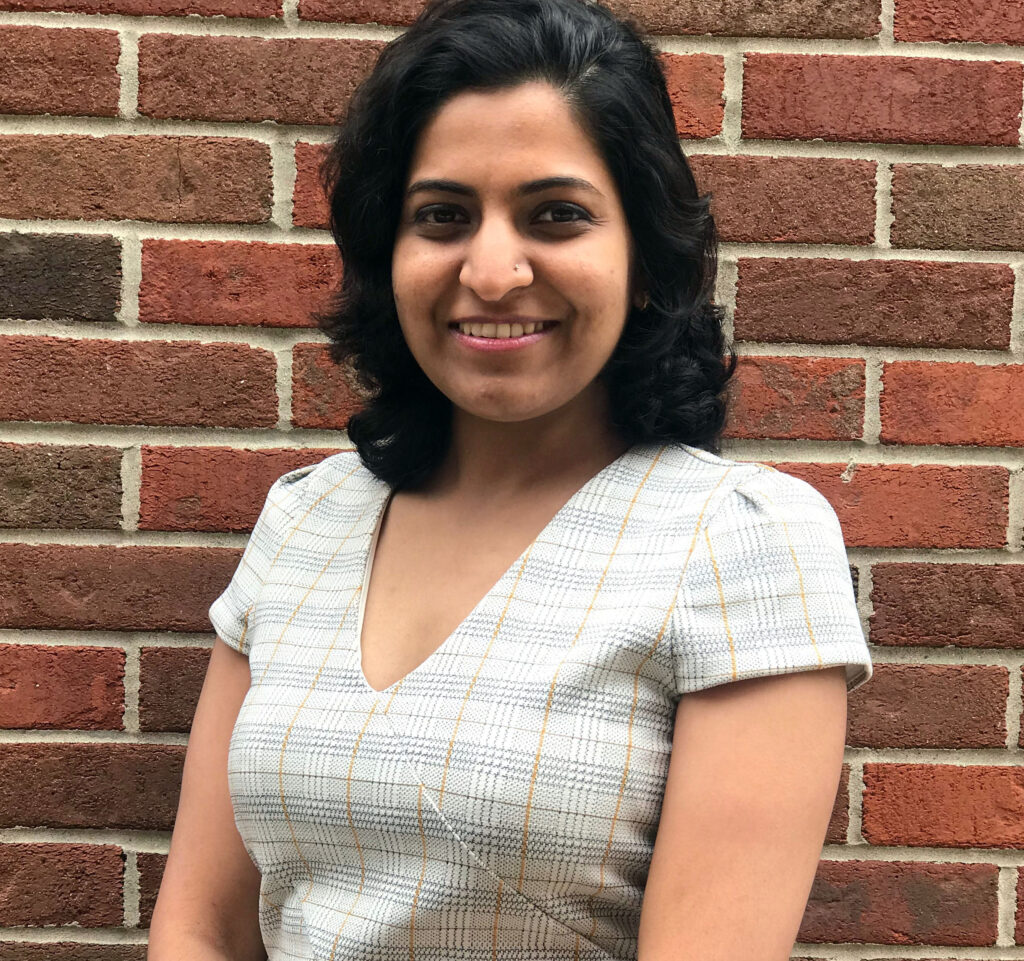We’re taking time to get to know the members of the GSA’s Early Career Scientist Committees. Join us to learn more about our 2021 early career scientist advocates.

Karishma Gangwani
Communication and Outreach Subcommittee
University of Dayton
Research Interest:
I am in my final year of a PhD program in Biology, where I conduct my doctoral research in the Kango-Singh lab at the University of Dayton in Ohio. Our lab focuses on studying genetic interactions involved during development and cancer progression using Drosophila as the model system, for which we have well-established glioma models and Ras-scribble tumor models.
My main research focus is understanding how cell death as a developmental process is regulated in normal cells and what goes wrong in that process that allows tumor cells to completely “evade” cell death signals and continue to grow and proliferate at an accelerated rate. The balance of cell death and cell growth must be maintained in order for proper development of an organ or tissue structure. A cancer cell can be seen as a “competitor” cell that can hijack the cellular components and different signaling pathways, which can lead to a growth advantage. I want to understand how the death signals contribute to the progression of cancer.
Many studies have shown the involvement of Caspase proteins in several developmental processes such as inflammation and cell death. The essential role of caspases is to perform programmed cell death by removing unnecessary or damaged cells. However, the levels of these proteins have been found to be significantly higher in several cancers such as breast cancer. However, instead of causing cell death, they allow cancer cells to outgrow other normal cells, while also leading to resistance to radiation and chemotherapy. I am very intrigued by how the tumorigenic potential of a cell could lead to its own re-programming and creation of new networks and signatures by overtaking the normal developmental processes, which help these cells survive by destroying other cells in order to have more space to grow.
For my research, I am trying to understand how cells die normally in Drosophila before metamorphosis occurs. I am working on understanding what components of the growth regulatory pathways, such as the Hippo pathway, trigger this cell death. My goal is to understand how these processes differ in a normal cell versus a malignant tumor cell.
As a PhD-trained scientist, you have many career options. What career paths interest you the most?
I was drawn to R&D in high school after reading about Eli Lilly’s innovation in recombinant DNA technology in insulin production which changed the landscape for people suffering from diabetes. The innovative side of science motivated me to become a PhD-trained scientist. Since then, I have learned the necessary lab techniques to answer complex questions as well as skills such as effective communication, time and people management, project management, critical and analytical problem solving, leadership skills, etc.
When I look at the vast array of skills getting a PhD has taught me, I realize there are a number of possible career paths. As a PhD scientist, we learn how to dive deep into a topic, studying and analyzing the details within a short amount of time. I have applied this same strategy to my own career development by conducting thorough research and diving deep into exploring different career paths. I am most interested in career options that can fulfill my curiosity and passion for science. As a result, the paths I am most drawn to are science communication and consulting.
Our duty as scientists is to use data-driven science and data-oriented evidence to answer questions about the complexity of life. The opportunity to do this is what I find appealing about technical consulting. I have a strong passion to help people grow and when people grow, they are more productive and motivated. As a result, the community and users/customers benefit, while adding value to the product or service. I want to use data effectively to drive the key decisions that impact our day-to-day lives.
In addition to your research, how else do you want to advance the scientific enterprise?
Research has the potential to drive everyday decisions. From the data we collect, we use this to make simple decisions about our day-to-day lives. This data may be qualitative or quantitative. For example, we check the weather before walking our dog to make an informed decision about whether we should carry an umbrella on the walk. Someone has done the research so that we can decide what decision to make. These solutions can make our lives easier and more efficient.
My research is about understanding how cell death is regulated during normal development and what goes wrong during cancer progression that allows the cancer cells to outgrow their normal wild type neighbors. At the same time, these cancer cells completely avoid cell death. So, the solution is not just to find the key players in regulating the processes but to use that information in making an informed decision. For example, does the research benefit any individual? What is the broader impact of the research? If we understand why cancer cells don’t die, can we tweak these mechanisms to make them die? Can we design specifically targeted therapy regimes for cases where cell death and cell growth processes are disrupted?
I want to advance the scientific enterprise by not only zooming into the details of a research topic but also zooming out and holistically looking at its broader value and impact in the community. To do this, I want to use evidence-based research.
As a leader within the Genetics Society of America, what do you hope to accomplish?
I want to bring knowledge within interdisciplinary domains together while using data to show the value of science. Being in a highly technical field often means getting lost in the details and jargon. To avoid this, I want to learn effective strategies for scientific communication, both written and verbal, which includes the art of storytelling. Science stories are driven by facts and evidence, while also affecting people.
I also want to encourage young scientists about the different career paths they can take, utilize the skillsets they gain during their research experiences, and help them transition from the bench to a leadership position. Interning at a consulting company has taught me so many things about myself, such as how much I love to work with people and collaborate on projects.
I want to use my platform as an ECLP member to share my experience. With the pandemic, it has become even more important to network, make connections, and work closely together to disseminate the correct findings and truth about science so that nobody is lost or misled. Just like how many small drops can come together to make an ocean, knowledge also grows by sharing.
Previous Leadership Experiences:
- Executive, Graduate Leader Council, University of Dayton, Dayton, Ohio
- Executive Assistant, Mission Addiction, Dayton, Ohio
- Vice-President, Student Council, Hislop School of Biotechnology, Nagpur, India
- Secretary, Student Council, Hislop School of Biotechnology, Nagpur, India
Contact Karishma Gangwani on LinkedIn, Twitter, or Instagram.













